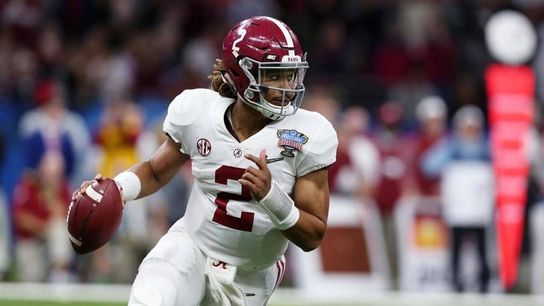A proposal that would slow the tide of graduate transfers across college football is unlikely to pass, according to a report Wednesday from Dennis Dodd of CBS Sports.
Under the proposal, schools would be required to count all graduate transfers against their scholarship limit for two years unless the player completed his graduate degree within one year. If the player plays his senior season at a new school but does not complete the graduate program he ostensibly transferred for, the new school would essentially be forced to carry a "dead" scholarship for the following year.
The thinking is the proposal, officially known as Proposal 2018-106, would stop or at least slow schools from taking players who pursue graduate transfers for purely athletic reasons, thereby defeating the proposal's original purpose. Oklahoma, Missouri and Arkansas are all expected to start graduate transfers at quarterback this fall. This, by the way, is separate from the issue that saw Justin Fields gain immediate eligibility at Ohio State and Tate Martell at Miami via the waiver system, which the NCAA has said it will re-examine.
The counter-argument against the proposal is that graduate transfers have held up their end of the bargain by graduating from their original school, so an athletics-first transfer is a just reward, especially considering coaches hop from school-to-school all the time.
Regardless of where you happen to fall on that debate, Dodd reports that the proposal is unlikely to pass -- not because of a philosophical opposition to the rule, but simply because of a lack of available data on the issue.
"Absent more study, (passage) doesn't sound very realistic to me," Vanderbilt AD Malcolm Turner told CBS Sports.
The 32 Division I conferences are scheduled to vote on the rule later this week, with higher-revenue conferences having weighted votes.
If the measure does pass, it would go into effect on Aug. 1.
